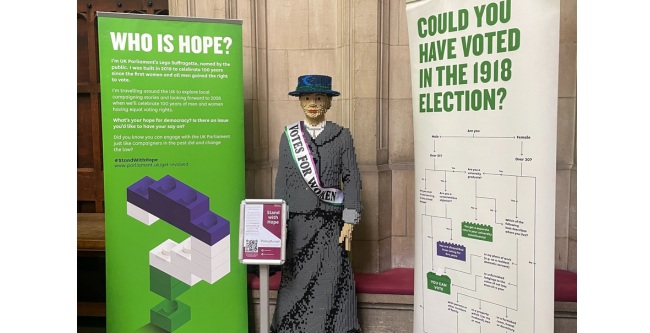Goal 5: Gender equality
Achieve gender equality and empower all women and girls
Our research
Researchers from the University of Bristol shared new research into the policing of violence against women and girls in 2024, with findings showing that there is a lack of trust in the criminal justice system to deliver outcomes. The report found that these types of crimes are less likely to result in offenders being charged, and that in particular women and girls from minoritised backgrounds are less well served. Training, institutional culture and structures, and community engagement were all noted as areas needing improvement.
Two Bristol-led studies have uncovered the vulnerability of women who have experienced domestic or intimate partner violence or abuse (IPVA), one around financial hardship and the other focused on social isolation. Financial hardship can follow a separation or divorce, with IPVA victims less likely to have assets to divide, and more likely to have to deal with complex legal procedures. Loneliness was also found to be a risk factor for vulnerable young people who entered relationships that became abusive, or who remained with or returned to abusive partners.
Our students
Bristol Engineering Design students have helped create a hand-spun washing machine that will soon be changing the lives of 10,000 families in the developing world. Working with charity The Washing Machine Project, groups of students have helped develop a machine that can ease the burden of hand-washing clothes, which predominantly falls on women and girls. It is estimated that the new machines, which will be mass produced by The Whirlpool Foundation, could help improve the lives of up to 150,000 people, easing poverty and opening up opportunities.
Bristol Students' Union launched a special fund in 2024 to help support students who are trans, non-binary, intersex or otherwise gender diverse. The fund is intended to help students obtain gender-affirming products such as clothing, and take gender-affirming action such as changing their name. The Gender Expression Fund has been made possible through funding from the University, and is part of efforts by the University and the Union to help alleviate the impact of the cost of living crisis on students.
Our communities
A new University project to help encourage greater diversity in technology and engineering has been founded by a group of researchers and students, working with partners from Women in Robotics UK. Titled LaunchBox, the project will train more than 30 engineers in diversity-focused outreach. It aims to reach more than 300 girls and non-binary students aged between 13 and 17, raising awareness of opportunities in the field of robotics through workshops, case studies, and role-modelling.
In March 2024, local people were invited to join a special screening of Netflix documentary Game On, exploring and celebrating the rise of women’s sport. The free event also included a panel discussion featuring the film’s director and leading women’s sport activist Sue Anstiss, alongside leading experts in the field.
September 2023 saw a visit to campus from Hope, a life-sized model suffragette built from 32,327 LEGO bricks. Originally commissioned by the UK Parliament in 2018, Hope is now touring the UK as part of celebrations leading up to the 100th anniversary of the 1928 Representation of the People (Equal Franchise) Act. She was hosted in the University’s Wills Memorial Building until October 2023 as part of the tour, accompanied by a public display on women’s suffrage.

Ourselves
In February 2024, Bristol joined other universities in the region to make a shared pledge to collaborate on tackling sexual violence and harassment. Working in partnership with students’ unions, the universities set out a joint commitment to a 10-point plan of actions to foster safe campus environments and support students, including by providing education on consent, and providing clear channels to report unacceptable behaviour, including across institutional boundaries.
The University joined with other GW4 universities and the Higher Education Policy Institute (HEPI) to publish a joint report on the gap in childcare support for postgraduate students, who are not eligible for either the Childcare Grants available to full-time undergraduate students or the in-work childcare benefits available to people in substantial employment. These hardships disproportionately affect women and people from lower income backgrounds. The GW4 partners have therefore called on the Government to extend the Childcare Grant to postgraduate students, to help improve diversity and ensure opportunity for all.
